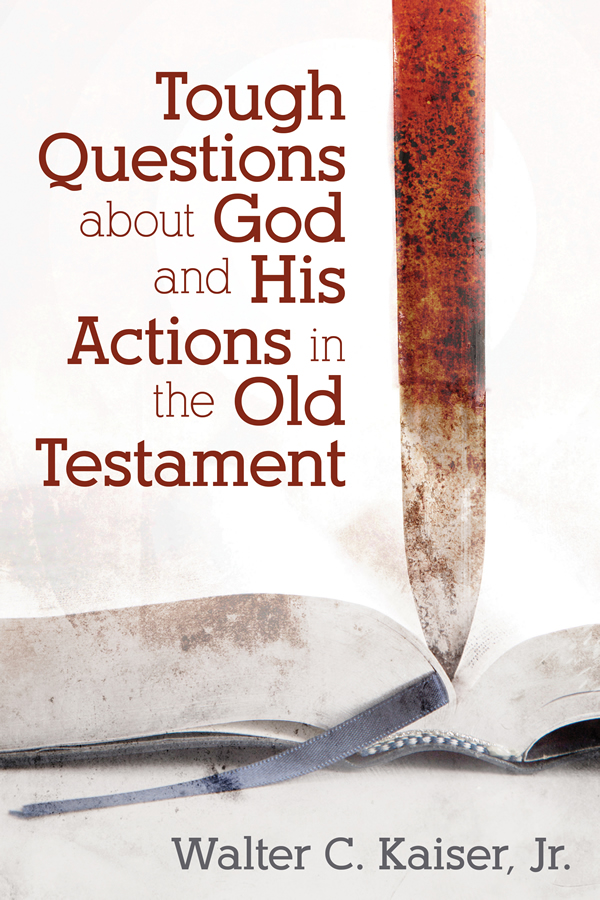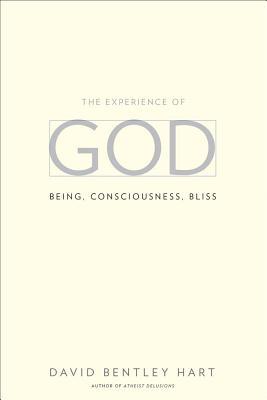God’s Oath is an Anchor for the Soul
In the middle of Hebrews 6 there is an important section where God’s covenant with Abraham is brought to the fore and the concept of covenant, and in particular the covenant oath, is brought out.
For when God made a promise to Abraham, because He could swear by no one greater, He swore by Himself… For men indeed swear by the greater, and an oath for confirmation is for them an end of all dispute. Thus God, determining to show more abundantly to the heirs of promise the immutability of His counsel, confirmed it by an oath, that by two immutable things, in which it is impossible for God to lie, we might have strong consolation, who have fled for refuge to lay hold of the hope set before us. – Hebrews 6:13, 16-18.
This passage uses the Abrahamic covenant as an example, but it is about the inalterability of God’s oaths. The centerpiece of the passage is the declaration that “an oath for confirmation is…an end of all dispute.” (Heb. 6:16). Without that, nothing else that is stated in the passage would be worth saying. This is precisely the point which I have been trying to make concerning the oath within the divine covenants in The Words of the Covenant. God’s oaths are adamant. They cannot be changed in any way. To attempt to do so one must use an undermining mechanism such as typology or generalization to redirect the precise surface meaning of the oaths.
The passage shows us God as He is – the covenant God. Taking as an analogy a human oath, where it was for “confirmation… for them an end of all dispute,” (Heb. 6:16). That is why our gracious God made covenants! Let this statement settle down into your mind and heart. God’s oaths are in Scripture to end all dispute! Of what could there be dispute? How about God’s Creation Project? Here it is in brief:
- This earth was preserved through the Flood and its predictability was secured by the Noahic covenant (Gen. 9:11).
- From one man (Abraham) God raised a promised son (Isaac) from whom would come the nation of Israel, who will be given a land with specified dimensions (Gen. 15).
- God through Moses gave Israel the Ten Commandments (Exod. 20:1-17; Deut. 5:1-22), nine of which are universal covenantal moral truths.
- The valiant deed of Phinehas in his zeal for Yahweh’s name (Num. 25:6-13) caused Him to make an everlasting “Priestly” covenant for his descendants (the Zadokites).
- The kingdom of Israel had its king and dynasty chosen by God (2 Sam. 7:1-29; Psa. 89), and his throne (i.e., the reign of David’s dynasty) would be everlasting (1 Chron. 17:12-14; Psa. 89:36; Isa. 9:6-7).
- The remnant of Israel will be redeemed through the coming King who will be “a covenant for the people”; a “New covenant,” both for Jew and Gentile, ruling from Jerusalem over a regenerated earth (Isa. 11:1-10; 49:1-8; Dan. 7:13-14).
I have tried to show that the New Testament story fully complies with this covenant structure, especially once the New covenant is understood as being made with the “new man” (Eph. 2:15), the Church beginning at the first advent, but this same New covenant awaits its predicted OT fulfillments at Jesus’ second coming. How can all this be known and known for certain? The answer is here: God has made covenant oaths which ought to drive away misunderstanding and “end all dispute.” The “two immutable things” (Heb. 6:18) are the Word of God and the covenant oaths of God which confirm it.[1] Since God’s covenants are made to end all dispute it behooves the people of God to make them so. That is Biblical Covenantalism. Biblical Covenantalism, defined as the Bible’s real covenantal teaching[2], is “an anchor for the soul.” (Heb. 6:19), which is secured by Jesus Christ Himself as our High Priest (Heb. 6:20).
Jesus Christ the High Priest and the New Covenant
Hebrews 7 prepares the reader for the New covenant work of Christ that is explained in Hebrews 8 – 10. Verses 1 to 10 describe how the line of Melchizedek, the shadowy figure mentioned in relation to Abraham in Genesis 14, is a superior priesthood than the later one stemming from Aaron and the Levites. This might seem surprising to anyone who has traced the “Priestly” covenant from its inception in Numbers 25, because of the everlasting covenant of peace that promised Phinehas an enduring line in the service of Yahweh. But it must be remembered that according to the detailed descriptions of the Zadokite/Levite ministrations in the coming temple in Ezekiel 44 – 46 there is no High Priest present – at least not from the tribe of Levi. This leaves the role of High Priest open, so to speak, for a High Priest from “the order of Melchizedek” (Psa. 110:4). And just as Melchizedek was the Priest-King of Salem (Heb. 7:2), so Jesus will be the Priest-King of Jeru-salem in His coming kingdom (Psa. 110:1-4; cf. 2:6-9; 50:1-2; Zech. 6:12-13).
The writer of Hebrews of course acknowledges this, and so he informs us that,
For the priesthood being changed, of necessity there is also a change of the law. – Hebrews 7:12.
The specific change in the Law the writer is talking about is that concerning the High Priest coming from the tribe of Judah. But one wonders whether this quite radical alteration in respect to the office of High Priest will entail other changes in the Law so that although there will be continuity between “Moses” and “Jesus” there will also be differences: what we might call “Old covenant law” and “New covenant law.”? This “New covenant law” would then be what is envisaged in Isaiah 2:3 (Mic. 4:2); Isaiah.51:4; and Jeremiah 31:33.
It is interesting that Hebrews refers to “the word of the oath” (Heb. 7:28), which references the words of Psalm 110:4 quoted already in Hebrews 5:6 and 10. Is this “oath” an instance where no covenant is directly involved – there is no “Mechizedekian covenant”? We know that the Davidic covenant is alluded to in Psalm 110:1, but what about the oath? Psalm 110:4 is quoted in Hebrews 7:21 to which is added these words:
by so much more Jesus has become a surety of a better covenant. – Hebrews 7:22.
So, the author does link the oath in Psalm 110:4 to the “better covenant.” This “better covenant” is the New covenant which Christ mediates (Heb. 8:6; 9:15; 12:24).
[1] Harold W. Attridge, The Epistle to the Hebrews, Hermeneia, Philadelphia: Fortress, 1989, 181.
[2] My attempt at following the Bible’s covenantal teaching is not to be confused with the infallible doctrine of the Bible itself. I am simply trying my best to provide an accurate account. Hence, one should distinguish between the noun (Biblical Covenantalism – my name for my approach), and the adjective (Scripture’s revelation of the covenants). Hopefully, there is a close correspondence!


3 comments On Hebrews: Another Reading (Pt.4)
Have you not missed something my brother?
Zechariah 6:12 “Then say to him, ‘Thus says the LORD of hosts, “Behold, a man whose name is Branch, for He will branch out from where He is; and He will build the temple of the LORD. 13 “Yes, it is He who will build the temple of the LORD, and He who will bear the honor and sit and rule on His throne. Thus, He will be a priest on His throne, and the counsel of peace will be between the two offices.”‘ (NASB1995)
2 Corinthians 6:16 Or what agreement has the temple of God with idols? For we are the temple of the living God; just as God said, “I WILL DWELL IN THEM AND WALK AMONG THEM; AND I WILL BE THEIR GOD, AND THEY SHALL BE MY PEOPLE. (NASB1995)
Ephesians 2:19 So then you are no longer strangers and aliens, but you are fellow citizens with the saints, and are of God’s household, 20 having been built on the foundation of the apostles and prophets, Christ Jesus Himself being the corner [stone,]. 21 in whom the whole building, being fitted together, is growing into a holy temple in the Lord, 22 in whom you also are being built together into a dwelling of God in the Spirit. (NASB1995)
Ephesians 3:3 that by revelation there was made known to me the mystery, as I wrote before in brief. 4 By referring to this, when you read you can understand my insight into the mystery of Christ, 5 which in other generations was not made known to the sons of men, as it has now been revealed to His holy apostles and prophets in the Spirit; 6 [to be specific,] that the Gentiles are fellow heirs and fellow members of the body, and fellow partakers of the promise in Christ Jesus through the gospel, (NASB1995)
These are the people of God. Built into the Temple of God by the BRANCH, Who is the Priest and King of the book of Hebrews. He is the provider of this New Covenant. Yes His Covenants and His Word must mean everything to us His people.
Are the last 2 paragraphs supposed to restate the previous ones? Or am I just missing something?
Thanks,
Paul
I just saw it. My bad! Thanks!